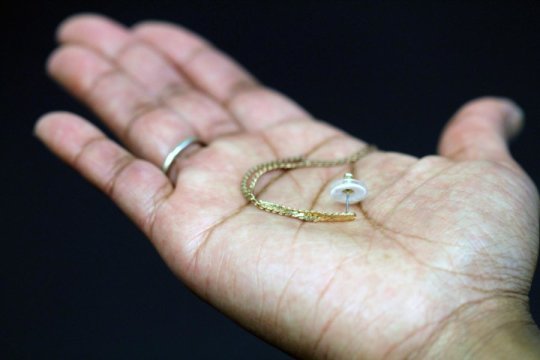Researchers at the Bloomberg~Kimmel Institute for Cancer Immunotherapy at Johns Hopkins and the Johns Hopkins University School of Medicine report two new forms of an older anti-cancer agent they developed appear to enhance the immune system’s ability to fight melanoma in mice. The agents, dubbed s-DAB-IL-2 and s-DAB-IL-2(V6A), comprise a regulatory protein called human interleukin-2 fused to chemically modified portions of diphtheria toxin. In a mouse model of melanoma, the two agents, when given together, depleted so-called T regulatory cells that infiltrate tumors and hinder the immune system’s ability to…
Read MoreCategory: Health
Childhood trauma may affect brain structure, predisposing adults to recurring major depressive disorder
Early life trauma may affect the structure of the brain in a way that makes clinical depression more likely to be severe and recurrent, according to a two-year observational study of 110 patients published in The Lancet Psychiatry journal. Previous studies have suggested an association between maltreatment and altered brain structure, while others have identified an association between maltreatment and major depressive disorder. This is the first study that directly establishes a link between maltreatment experiences, brain structural alterations and clinical course of depression. It is also the first to shed light…
Read MoreGeneric weight-loss drug may be safe and effective for long-term treatment
An inexpensive weight-loss drug approved 60 years ago for only short-term use also may be safe and effective for longer-term treatment, according to a study conducted by researchers at Wake Forest Baptist Health and the Patient Outcomes Research to Advance Learning (PORTAL) network. The study is published in today’s issue of the journal Obesity. The drug, phentermine, is currently FDA-approved for use of up to three months. “Although diet and exercise are critical components of any weight-loss program, up to half of patients don’t have long-term success with lifestyle changes alone,”…
Read MoreContraceptive jewelry could offer a new family planning approach
Family planning for women might one day be as simple as putting on an earring. A report published recently in the Journal of Controlled Releasedescribes a technique for administering contraceptive hormones through special backings on jewelry such as earrings, wristwatches, rings or necklaces. The contraceptive hormones are contained in patches applied to portions of the jewelry in contact with the skin, allowing the drugs to be absorbed into the body. Initial testing suggests the contraceptive jewelry may deliver sufficient amounts of hormone to provide contraception, though no human testing has been…
Read MoreDeep brain stimulation provides sustained relief for severe depression
Patients suffering from severe, treatment-resistant depression can benefit not only acutely but also the long-term from deep brain stimulation, as researchers from the Medical Center — University of Freiburg and their colleagues from the University Hospital Bonn demonstrate in a current study. The team used thin electrodes to stimulate a deep seated part of the reward system in the brains of 16 patients. This led to a significant reduction of ratings of depression severity in all patients, it was reduced by half on average. For half of the study participants…
Read More
